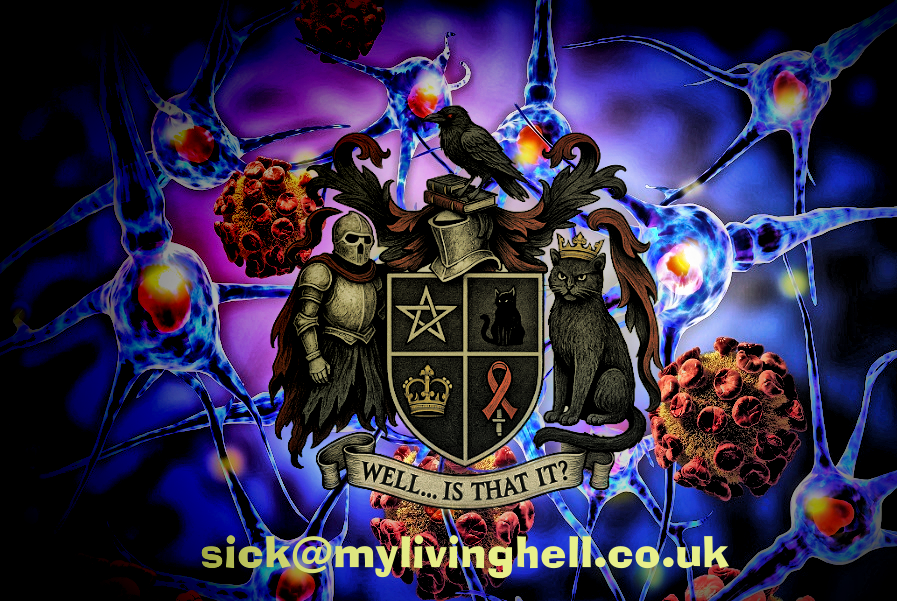- Posted on
- • Uncategorized
Adoption: The Great Rescue (Or So They Thought)
- Author
-
-

- User
- sick
- Posts by this author
- Posts by this author
-
Now, you'd think being adopted would make you feel special, wouldn't you? Plucked from the masses. Chosen. Wanted. Like some sort of limited-edition porcelain doll — or at least a slightly bruised Cabbage Patch Kid on the clearance shelf. Especially when the couple adopting you were the well-meaning, late-blooming, churchgoing sort. A pair who left it a bit too long to do things the natural way and turned instead to the almighty bureaucracy of the adoption system. We were, allegedly, pillars of the community. Church on Sundays. Bible verses in frames. Smiling politely while dead inside. One of those families people described as “nice” — which, as we all know, is English for deeply repressed and probably hiding something. But let me tell you now — there was nothing particularly special about my experience. No grand celebration. No “you were chosen” speech bathed in soft lighting. Just the cold hard weirdness of being handed over like a package someone ordered by mistake and then kept out of obligation. This is my story, or at least the bits I can remember. Thanks to MS chewing through my memory like a moth in a charity shop wool bin, I’ll stick to what I know actually happened. No dramatics. No supposition. Just the highlight reel of what went down in the first 21 years of life with my “caring, loving” adopters. (Heavy on the sarcasm. Light on the caring.) I was born in 1959 — glamorous era of grey fog, casual repression, and processed meat — to Shirley Chester and Roland White. My grand debut took place in a mother and baby unit near Windsor, Berkshire. Very posh. Very discreet. The kind of place designed to make “problems” go away quietly. Now, as for dear old dad — Roland — he wasn’t exactly the pipe-and-slippers family man type. No, Roland was what you might call a prolific contributor to the UK’s secret sibling population. Six foot six, blue eyes, and apparently charming enough to talk the legs off a barstool (and then climb on). A proper lady-killer, in the sort of “charming bastard” way that leaves behind an impressive trail of broken hearts, confused women, and half-siblings you’ll never meet. A walking DNA test ad, really. He was one of those men whose legacy wasn’t love or honour, but volume. If my mum was one of many, I wouldn’t be the least bit surprised. Bloke probably thought commitment was a French cheese. He was, quite frankly, a cocky sod with a weak zipper and no follow-through. Couldn’t raise a child, but could apparently raise eyebrows in every pub south of Birmingham. Anyway. After that fleeting start in Windsor, I entered the warm and loving arms of the Church of England’s Waifs and Strays adoption society — an organisation with a name that sounds like it was invented by Charles Dickens in a particularly bleak mood. I always thought that was a bit rich, honestly. “Waif”? Cheers for that. Makes me sound like a malnourished chimney sweep rescued by God-fearing benefactors instead of, you know, a tiny, confused infant with absolutely no say in the matter. At six weeks old, I was scooped up and spirited away. I seem to remember strange people looming over me — the kind of memory that sits somewhere between a fever dream and a bad 1960s public information film. You may find that odd. People say, “You can’t remember anything from when you were six weeks old.” Well, I beg to differ. I was breastfed by my birth mother — bonded in those crucial first weeks. That kind of connection isn’t something you file away and forget. That bond stayed. Unbroken. Quiet. But there. The earliest memory I have — and it's a cracker — is of being in a cot, staring out into a room filled with people. Adults. Talking in that dull, droning way that adults do when they think babies aren’t paying attention. But I was. And I could understand them. That’s the weird bit, I know. I was trying to speak back — but what came out were just howls. Screams. Imagine the frustration of having something to say and only being able to scream it into the void. Pretty much set the tone for the next two decades, to be honest. The room was grand, in that ‘drafty Victorian mausoleum’ sort of way. Tall sash windows. Curtains like theatre drapes — thick, dark purple, like something draped over a coffin. They fascinated me. Probably the most emotionally available thing in the house at the time. That place was called Broxton Manor. Sounds fancy, doesn’t it? Like it should come with servants and scandal. But to me, it was just the first stop in a life that never quite lined up with the story I was sold. The adoptive parents — I won’t name them. Not out of respect. Just out of sheer lack of interest in giving them more attention than they gave me most days. They’re dead now, anyway, along with most of the cast of this grim little play. But I’ll tell you this much: that early image, of me screaming in that room, desperate to be heard by people more concerned with appearances than emotion — well, that one stayed with me. So no, adoption didn’t make me feel chosen. It made me feel processed. More to come. The curtain hasn't even lifted yet.
looking to buy a second hand q100 wheelcair or similar in the devon cornwall area as mine has gone completely to the breakers yard in the sky. sick@mylivinghell.co.uk
“The views in this post are based on my personal
experience. I do not intend harm, only honesty.”